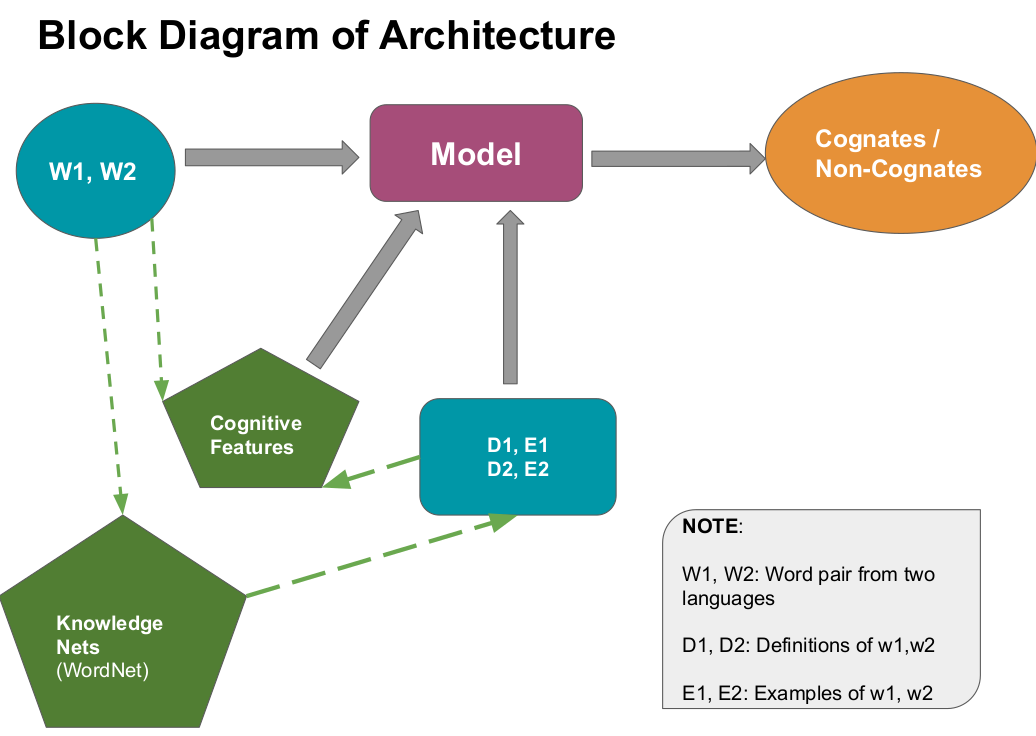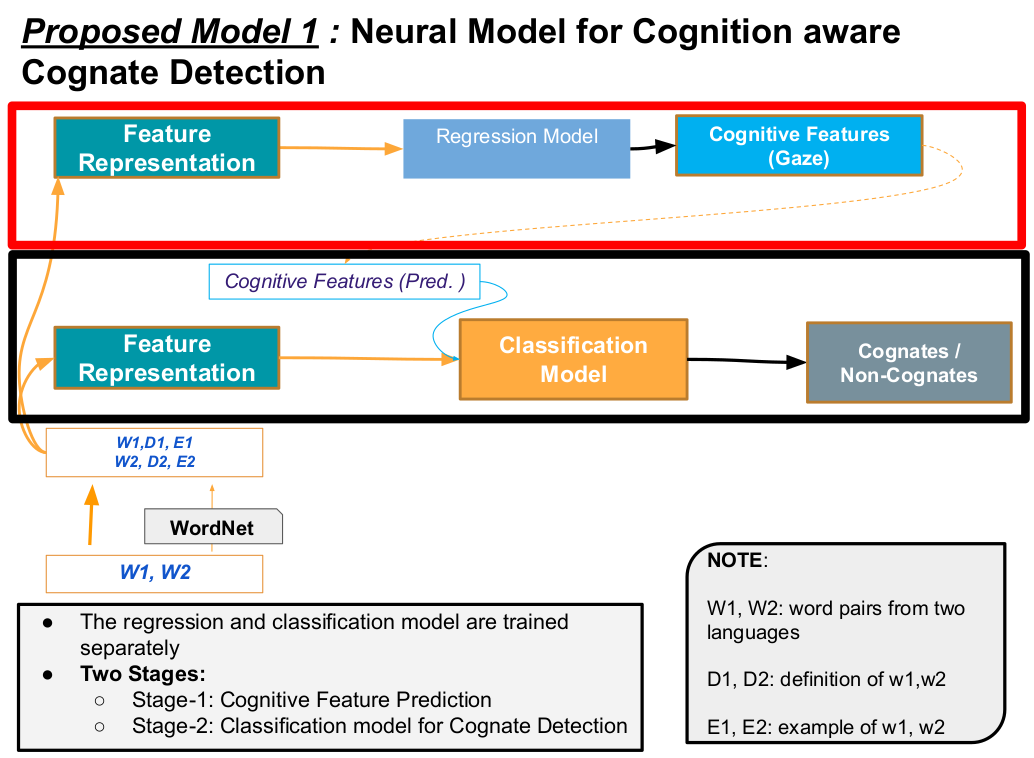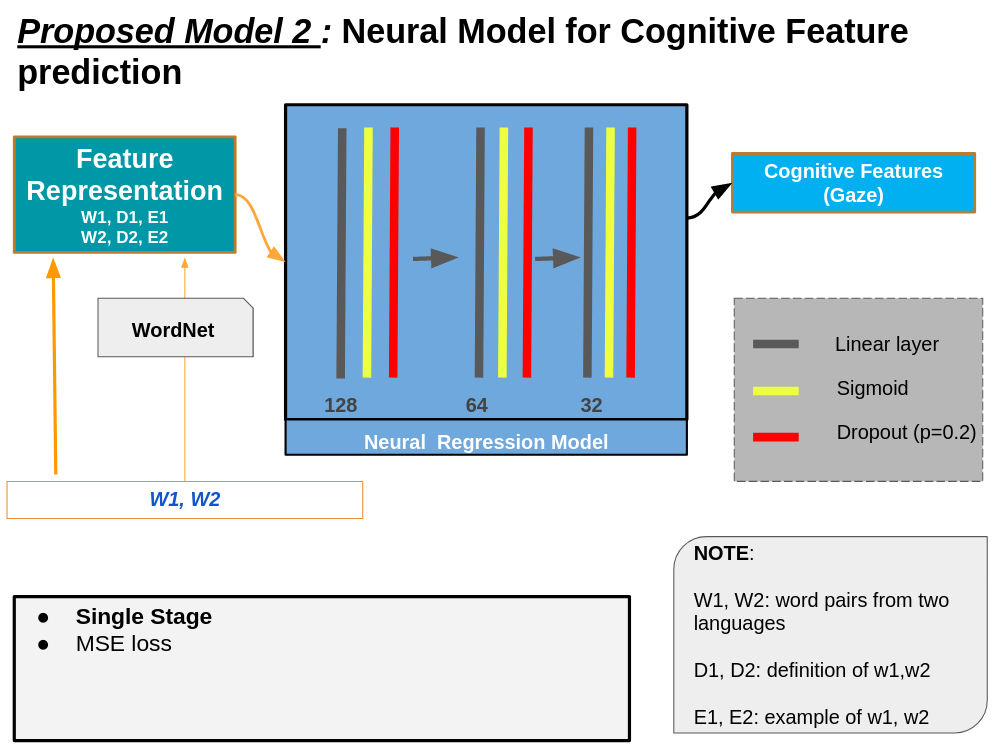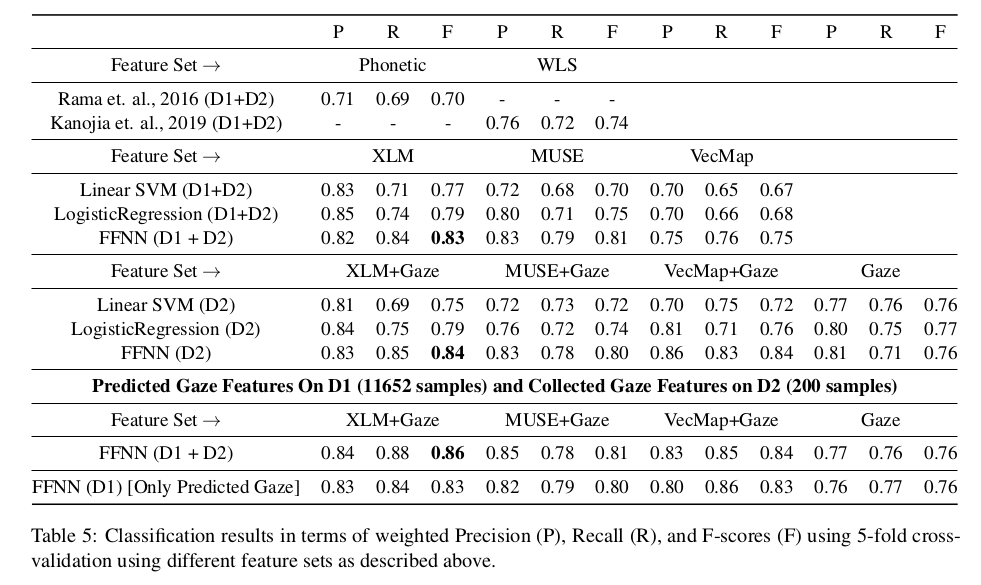The repository which contains our code for our EACL 2021 paper titled, "Cognition-aware Cognate Detection". This work was awarded a best paper honourable mention among the long papers during the conference.
We ask the following pertinent questions with this work:
“Can cognitive features be used to help the task of Cognate Detection?”
furthermore,
“Using gaze features collected on a small set of data points, can we predict the same features on a larger set of data points to alleviate the need for collecting gaze data?”
The paper description, PDF, Slides and Video are available here: http://dipteshkanojia.github.io/publication/eacl-2021-cognate/
In case you use this data, code or research from this work, you are requested to please cite as follows:
@inproceedings{kanojia-etal-2021-cognition,
title = "Cognition-aware Cognate Detection",
author = "Kanojia, Diptesh and
Sharma, Prashant and
Ghodekar, Sayali and
Bhattacharyya, Pushpak and
Haffari, Gholamreza and
Kulkarni, Malhar",
booktitle = "Proceedings of the 16th Conference of the European Chapter of the Association for Computational Linguistics: Main Volume",
month = apr,
year = "2021",
address = "Online",
publisher = "Association for Computational Linguistics",
url = "https://aclanthology.org/2021.eacl-main.288",
pages = "3281--3292",
abstract = "Automatic detection of cognates helps downstream NLP tasks of Machine Translation, Cross-lingual Information Retrieval, Computational Phylogenetics and Cross-lingual Named Entity Recognition. Previous approaches for the task of cognate detection use orthographic, phonetic and semantic similarity based features sets. In this paper, we propose a novel method for enriching the feature sets, with cognitive features extracted from human readers{'} gaze behaviour. We collect gaze behaviour data for a small sample of cognates and show that extracted cognitive features help the task of cognate detection. However, gaze data collection and annotation is a costly task. We use the collected gaze behaviour data to predict cognitive features for a larger sample and show that predicted cognitive features, also, significantly improve the task performance. We report improvements of 10{\%} with the collected gaze features, and 12{\%} using the predicted gaze features, over the previously proposed approaches. Furthermore, we release the collected gaze behaviour data along with our code and cross-lingual models.",
}
Automatic detection of cognates helps downstream NLP tasks of Machine Translation, Cross-lingual Information Retrieval, Computational Phylogenetics and Cross-lingual Named Entity Recognition. Previous approaches for the task of cognate detection use orthographic, phonetic and semantic similarity based features sets. In this paper, we propose a novel method for enriching the feature sets, with cognitive features extracted from human readers’ gaze behaviour. We collect gaze behaviour data for a small sample of cognates and show that extracted cognitive features help the task of cognate detection. However, gaze data collection and annotation is a costly task. We use the collected gaze behaviour data to predict cognitive features for a larger sample and show that predicted cognitive features, also, significantly improve the task performance. We report improvements of 10% with the collected gaze features, and 12% using the predicted gaze features, over the previously proposed approaches. Furthermore, we release the collected gaze behaviour data along with our code and cross-lingual models.
Please refer here
In case of any query / issue please:
- Open a github issue (OR)
- Send an email with "[EACL2021 CaCD]" in the subject to dipteshkanojia [AT] gmail [DOT] com ( or prashaantsharmaa [AT] gmail [DOT] com )
- Sending the email with subject will make it easier for us to resolve the issue promptly.
We will try our best to resolve it as soon as we can.










